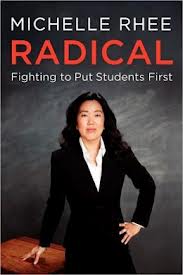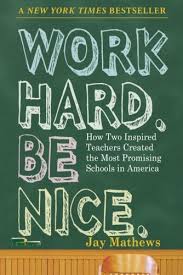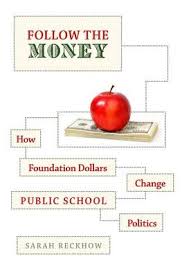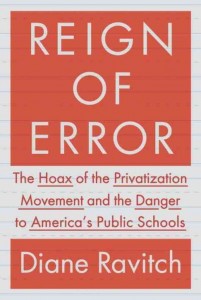Public education in the United States is under fire. Over the last thirty years, our system of public education has been criticized for being overly bureaucratic, inefficient, and unable to meet the demands of today’s rapidly changing economy.
Much of the criticism of public education has been focused on student performance on standardized measures of achievement. In international comparisons with other industrialized nations, our low test scores are often presented as evidence of the poor quality of our schools. Within the U.S. standardized test scores repeatedly demonstrate the inability of schools to address differences in the performance between poor and minority students and their wealthier non-minority peers.
Out of this criticism, multiple efforts to improve the educational performance of our system of public education have developed. People like Michele Rhee, Wendy Kopp, Joel Klein, Bill Gates, and others have presented new and sometimes controversial ideas for reforming public schools that that we will study in some detail. (For example, we will read excerpts from the following books — and many others as well.)


Some academics including Diane Ravitch, Linda Darling-Hammmond, Gene Glass, and others have raised concerns about some of the plans now being proposed and we will study these as well. (Images of some of these more critical books are also included below and other images of key figures in educational reform are also included throughout this site — by the end of the course you should be able to identify all of these individuals.)
In general, much reform activity has focused on changing the way public education is provided, and changing the way teachers are trained and compensated. With respect to the provision of public education, reformers have pushed to break up what they view as an “educational monopoly” enjoyed by public schools in favor of charter schools and other market based mechanisms. With respect to teachers, reformers have challenged traditional preparation models and sought to entice more of America’s best and brightest students into the profession. As you will see, in education, everyone seems to have an opinion about what works best. Even Pit Bull  has gotten involved in the development of charter schools.
has gotten involved in the development of charter schools.
While public education in the United States is clearly flawed, and many of the reforms now being enacted can be praised because of their intention to address persistent social justice issues, these same reforms are also cause for alarm because many of them threaten the “public” nature of our schools. By pursuing market-based educational models, many reformers are seeking to turn a public endeavor into an opportunity for profit. Such changes shift the democratic relationship that should exist between citizens and their government toward one that more closely resembles the relationship between consumers and providers. Will such a relationship support the democratic aspirations of our nation? How might changing public education in the ways now being debated change our understanding of what it means to be a citizen in a democracy?
Such questions are at the center of this course which is designed to examine the current reform efforts now underway in order to better understand their purpose and motivation. In order to make sense of the current discourse surrounding education reform, we will adopt a critical lens that seeks to contextualize changes in education in terms of other changes in our society and the values driving those changes.
Some of the fundamental questions that we will discuss during the course of the semester include:
- What is the purpose of education in a democracy?
- Why is public education often an arena of contestation?
- Who should control public education? Who should have a voice? Students? Parents? Teachers? Taxpayers? Others?
- How should matters of educational policy be decided?
- What is the appropriate balance between policy values such as freedom, choice, quality, and efficiency?
- How do changes in educational policy reflect changes in other areas of public policy?
- What role does the media play in shaping the public’s perceptions of educational reform?
Throughout the semester we will explore these issues and others with the goal of helping you develop an in-depth knowledge of contemporary school reform efforts and the problems they are designed to address. In addition, the course will help you to develop the ability to view these efforts through a critical lens that seeks to uncover the often hidden assumptions that accompany efforts at reform. Finally, the course will equip you with the ability to construct and convey (both in speech and writing) well-supported arguments about what you believe the best course of action for public education might be and why.




